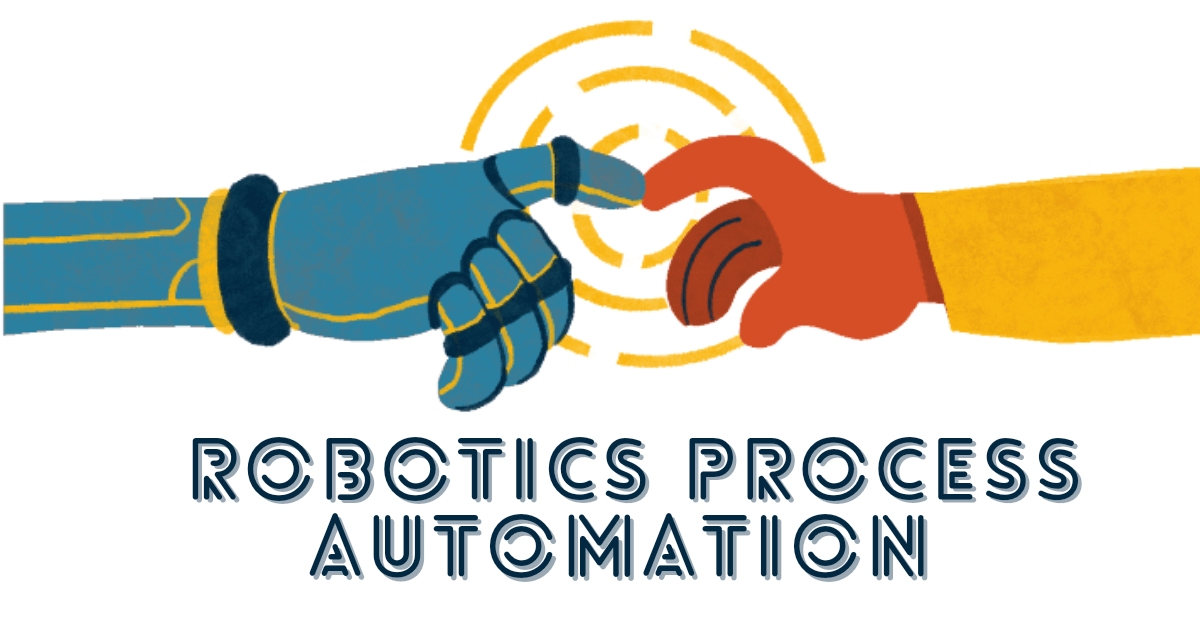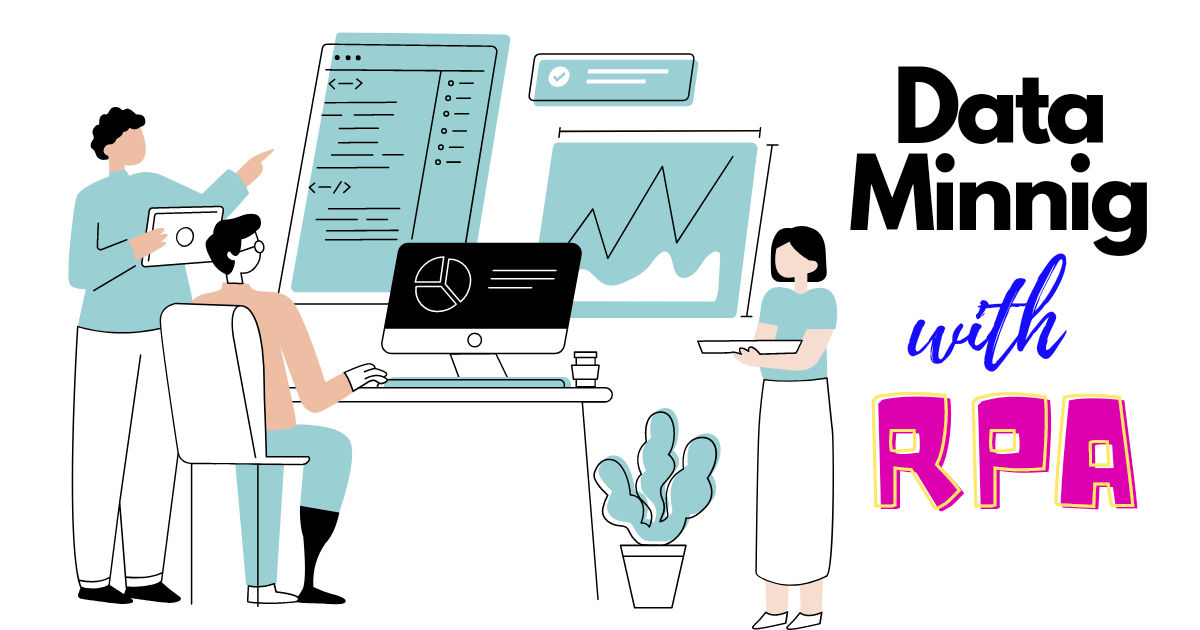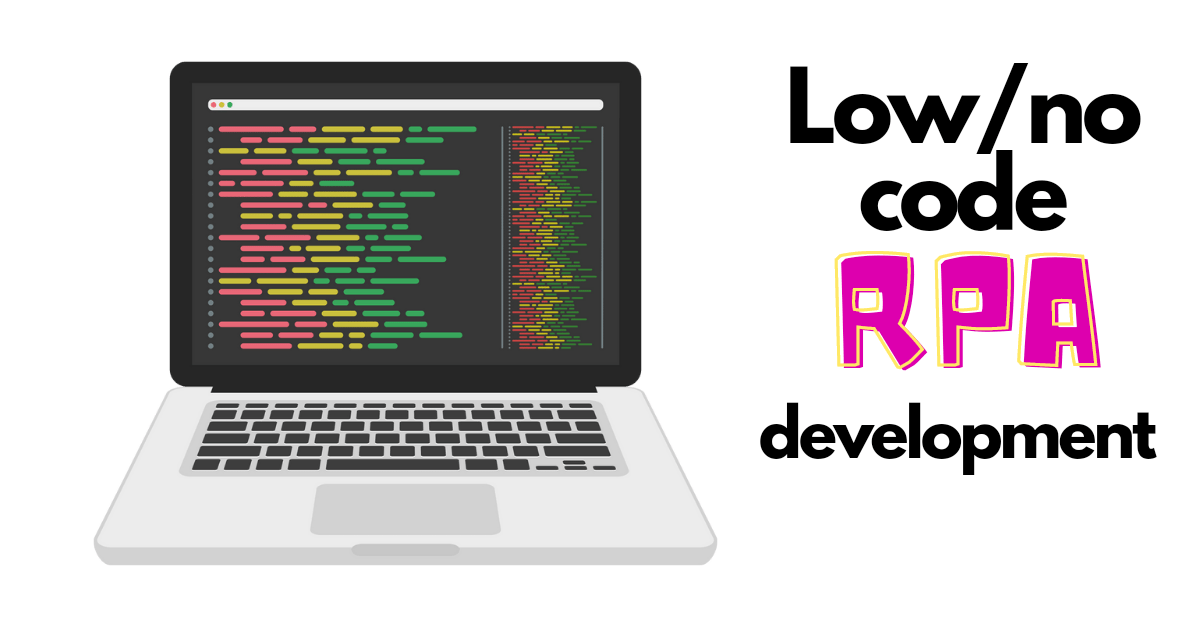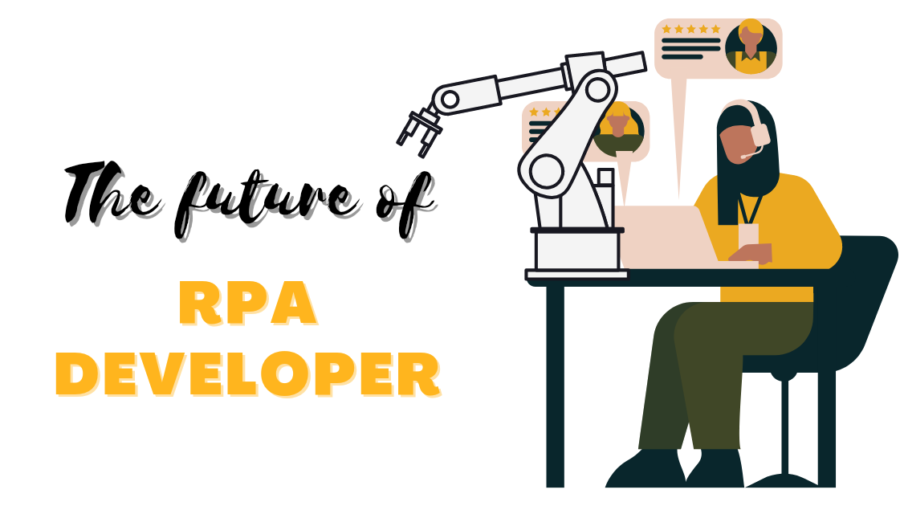The future of RPA developer looks promising . In today’s world, to get better efficiency, businesses are shifting towards automation of repetitive tasks . RPA helps businesses to achieve their goal of automation by using software robots. As more organizations are embracing automation, demand for skilled RPA developers is growing.

According to a report by Marketsandmarkets, the global RPA market is expected to grow with an annual growth rate of 11.1%. It is expected to grow from 1.5 billion usd in 2023 to 2.6 billion usd by the year 2026.
Large demand for automation in various industries like healthcare, manufacturing and retail is going to impact the market ,which will clearly open a gate of opportunities for RPA developers in upcoming years.
In the era of technology, the RPA has to play a pivotal role in shaping the future of automation and industry.
Here we are discussing some parameters which suggest promising career growth and the future of RPA developers:
1. Evolution of RPA: How it will affect the future of RPA developers?

RPA has established itself as a successful automation solution and has the capability to expand more. Nowadays, with of advancement in artificial intelligence and machine learning, RPA is capable now of performing cognitive and complex tasks. RPA developers are required to keep themselves updated with emerging technology and need to develop an understanding about integration of machine learning and AI into RPA
According to a report published by the delloite group, RPA jobs are in one of the top 20 emerging job sector in the market. The report also states that RPA skills are also essential for jobs like software development and business analysis.
2. Collaboration with Humans:
contrary to common belief of robot replacing humans, RPA developer will act as a bridge between human and machines. The future of RPA developers primarily revolves around collaborative robots (COBOT) where humans and robots work together to perform a task .
Developers are going to play an important role in designing an intelligent robot which can easily integrate into human life, which will eventually allow humans to focus on more creative works. In the new era of artificial intelligence and machine learning combined with Cobot, it is essential for RPA developers to develop such skills to grab opportunities. The answer of the question – What is the future of RPA developer? is “very bright”.
3. Future RPA Capabilities:
After its introduction,RPA technology has proven itself to be a successful technology advancement itself. Initially, with RPA , we used to perform some rule-based tasks which have a repetitive nature. However, we will achieve significant advancement in RPA capabilities.Cognitive automation, where computer vision combines with RPA and language processing , will help robots to understand unstructured data, make decisions and perform complex tasks.
Alongside ai and machine learning, RPA developers are required to acquire such skills to use these technologies effectively.
Research conducted by Gartner suggests that more than 50% of organizations will start using RPA till the end of 2025 , which is tremendous growth as compared to 2019 where only below 10% of organisations were using RPA .
4. Process Mining and Optimization:

RPA developer has the opportunity to deal with large data, which opens up opportunities for data mining. With the data mining process, one can easily identify a better scope of automation by getting insight into existing workflow.
By processing data generated by the process, the rpa developer can identify the problem, debug and rectify the glitch which results in optimising efficiency and streamline the operation.
The future of RPA developer lie with acquiring knowledge of business analysis, domain expertise to go through complex processes and derive better solutions with the help of automation.
According to Indeed, the demand for RPA developers has increased by 60% over the last two years, whereas the number of RPA job seekers has only increased by 40%. The future of RPA developers can be assumed to flourish with such supporting data.
5. Hyperautomation and Integration:
When we combine the RPA with other automation technology like AI, we get better efficiency. This process is known as Hyperautomation. It has to play an important role in future digital transformation which indicates the future of RPA developers associated with this technology.
The future of RPA developers lies with the skill and responsibility of hosting the multiple technologies together and developing various systems to get achieve an end-to-end automation objective. RPA developers need to acquire a complete understanding of automation, proficiency in amalgamating various systems and designing realistic and scalable models for automation.
6. Low-Code/No-Code RPA Development:

Robotic process automation offers us so many easy-to-use user-based solutions. Without knowing complex coding, developers use and drop facilities to design simple systems and execute any task.
These are some famous low / no code RPA development platforms which offer a drag and drop facility to build automation system.
UiPath
Automation Anywhere
Microsoft Power Automate
Pegasystems
WorkFusion
To start with RPA, one should start with these platforms initially. From beginner to proficient developer, it gives an edge in developing simple to complex automation solutions. The future of RPA developers associated with these low code RPA platforms, RPA developers should always get familiar with these platforms.
In addition, a report published by Forrester Research also suggests that as the market is growing, RPA applications are also expected to grow rapidly, which will eventually result in a number of new software vendors coming into the market to capture this market growth. The future of RPA developer depends on the knowledge and skill sets to utilise these tools in efficient manner.
7. The future of RPA developers in the field of Intelligent Automation and Cognitive RPA
Intelligent automation refers to a technology where we combine Artificial intelligence with RPA to perform complex decision-making tasks to increase productivity of a business, whereas cognitive RPA is a branch of Intelligence automation,where we use traditional RPA tools to perform cognitive tasks with the help of AI.
To integrate Cognitive technology like natural language processing and machine learning into RPA , developers with desired skill are required in this field. Analysis of recent market trends suggest a promising future for RPA developers in this area.
8. The future of RPA developer in the field of Governance and compliance:
With the rapid growth in automation, it has become crucial to ensure governance and regulations.
RPA developers need to keep updating themselves about cybersecurity, data privacy and other regulations related to automation. Developers will have all the responsibility of ensuring regulations, defending from illegal and unethical practices by designing a secure system for a better future. it will be essential for developers to explore this landscape for better career growth.
9. Upskilling and Continuous Learning:
With continuous growth in RPA , developers are also required to keep updating their skill sets.
To stay relevant in industry, updation of skills is essential to synchronise with this dynamic technology.
Adapting new technology and acquiring new skills are some key that will give a boost to the future of RPA developers.
A report published by Burning Glass Technology says “Job postings of RPA developers have increased by 90 percentage on today’s day, as compared with 2015 and it is expected to grow more in future”. The report also states that RPA developers have a higher paying job profile than other traditional jobs.
In conclusion, the future of RPA developer is very exciting. With potential growth, it has some challenges ,but one can overcome the challenges by synchronizing themselves with the technical developments. Automation is a future. Organizations are going for automation to gain better productivity, which clearly suggests a good market for RPA in future. With developments in artificial intelligence and other technology, organisations are shifting their repetitive tasks to automation. This changing industrial behavior is opening a big door of opportunities for RPA developers. RPA developers have to play a key role in machine- human interference.
Read more:
How do drone shows work? It’s Cost and technology behind this wonder.
Robot Cart : Amazing Tool To Transform Industries In 2025:
RUST : Best language for Robotics in 2025:
Hexbot Robotics : A Futuristic Robotics Arm:
10 Reasons Why I Love Robotics:
The Future of AI: Top 7 Latest AI developments:
Robot Wheel , Critical part of a robot in 21st century
what is the future of RPA(Robotics Process Automation) developer??
With ongoing developments, every organization is eager to adopt automation, which clearly indicates a bright future of RPA developer.
Is RPA a good career option in 2023?
It is a good career option for present and upcoming years. Due to high demand in industrial automation, rpa developer has better career opportunities.
Is RPA a high paying job?
yes, indeed. The avarage salary of RPA developer is $88,892 approx, which is slightly more as compared to other job profiles.
How many months it take to learn RPA?
It varies from less than 1 month to 6 months depends on the resources and the hardwork you are doing .

[…] What is the future of RPA developer? : Robotic Process Automation in 2023 […]
[…] read more: What is the future of RPA developer? : Robotic Process Automation in 2024 […]
[…] read more: What is the future of RPA developer? : Robotic Process Automation in 2024 […]